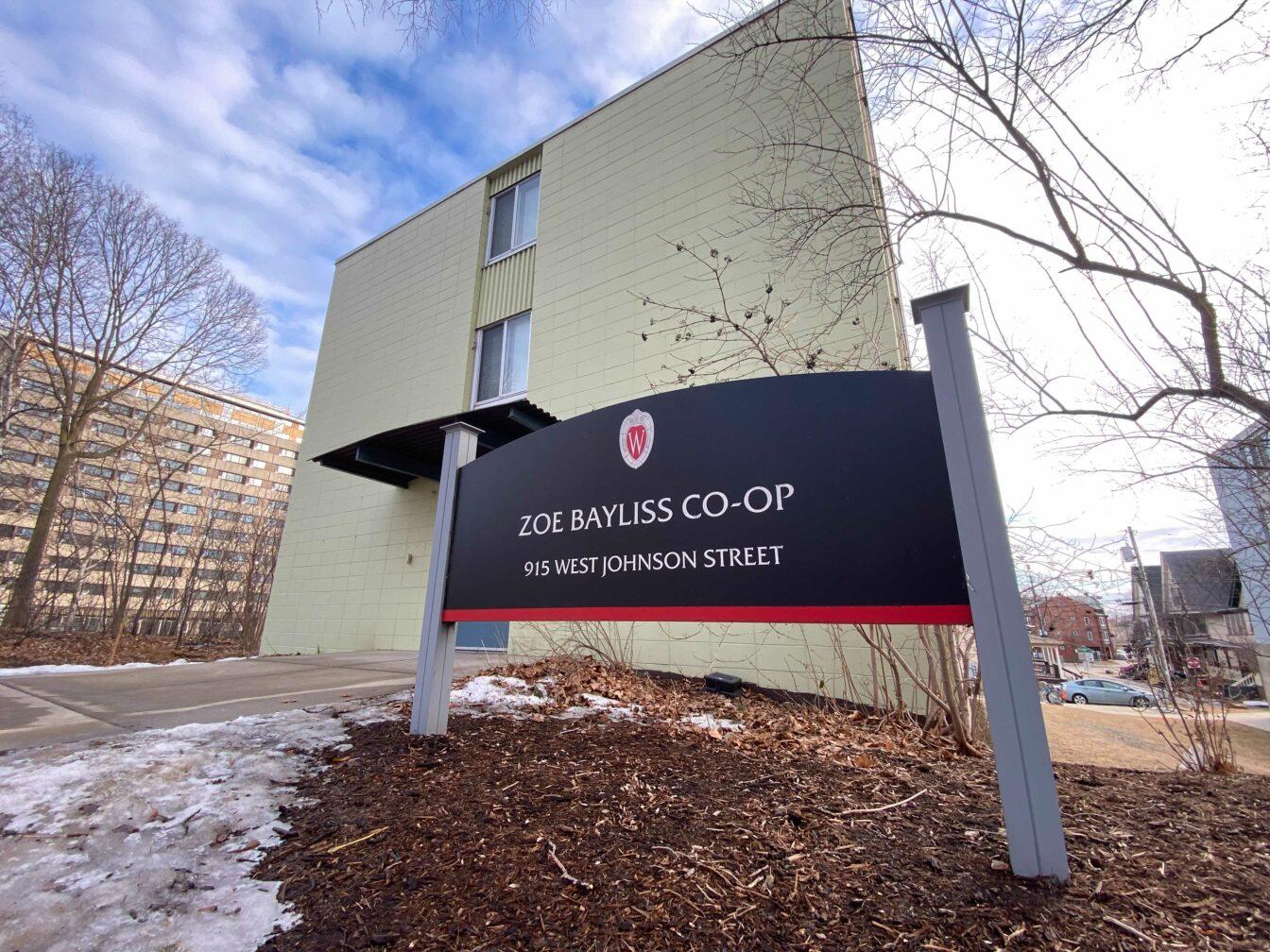With the University of Wisconsin’s last student housing cooperative set to be demolished for a new humanities building, the co-op’s residents are pushing back against the university’s demolition decision and demanding an alternative on-campus space to keep the cooperative afloat.
The Zoe Bayliss Cooperative, a 67-year-old cooperative, provides affordable housing on the UW campus for a mixture of undergraduate, graduate and international students who cannot afford to live in dorms or other campus housing, according to a press release from the Zoe Bayliss Student Housing Cooperative.
UW receives $20 million donation for new Letters and Sciences building
The Co-op is located near the heart of campus on the corner of Park and West Johnson near other residence halls. The independent Co-op operates out of a leased university owned-building, housing about 35 residents.
The current location of the Zoe Bayliss Co-op will be replaced by the new Irving and Dorothy Levy Humanities Building, a decision made in 2021 as part of the Campus Master Plan. In order to begin construction on the building, the Co-op must vacate their current space at the end of the 2022-23 academic year.
The Zoe Bayliss Co-Op will remain open for the 2022-23 academic year until construction begins, meaning beginning in the 2022-23 school year, the Co-op’s low-cost alternative to residence halls will be obsolete, according to the cooperative’s press release.
“If the Cooperative no longer has access to this building or the University does not provide an adequate alternative for the Cooperative to continue to operate, this community may cease to exist,” the press release said.
Though Zoe Bayliss advocates are requesting a stand-alone building as a replacement of their current location, Co-op President Angela Maloney said in an email statement to The Badger Herald that University Housing has not offered any acceptable alternatives and did not adequately address the rights of Bayliss residents.
“There must be something done to address the affordability of housing on campus, and Zoe Bayliss offers a perfect community for those susceptible to this sort of crisis,” Maloney said.
University Housing spokesperson Brendon Dybdahl said the Co-op has known for years that its present location would be demolished. The university has held many conversations with the Co-op to provide them with alternate options if they want to continue renting from campus, Dybdahl said.
The alternatives the university has offered include a section of a residence hall or a group of apartments in the Eagle Heights community. Dybdahl said the university has also encouraged the Co-op to look at and compare other off campus options if no UW spaces are the “right match.”
“Some aspects of the current Zoe Bayliss program may not be possible to recreate perfectly in existing campus housing facilities, so we continue exploring options and talking with their community about what elements are most important to their residents,” University Housing said in a statement. “The hope is for the Co-Op to secure a new home for their community well before the 2023-24 school year so that their program can remain vital.”
To recognize the Co-op’s right to stay in their current location or provide a stand-alone alternative building on campus, Maloney and the Zoe Bayliss community are urging students to email University Housing and sign a petition to save the Co-op.
The petition argues that University Housing’s proposed alternatives would increase the price of rent for residents and result in the loss of financial control over the Co-op. Maloney said UW failed to acknowledge the importance of the cooperative in their decision to get rid of the building.
UHS, RecWell request $10 increase per student in segregated fees
“It feels like the university did zero planning to think through how their decision to tear down our building would affect our community,” Maloney said. “It’s important to keep Zoe Bayliss alive for future UW students.”
Dybdahl said the university has “engaged regularly” with the Co-Op about these changes over the years. Additionally, in 2019, University Housing offered to take over the Co-op’s management to “help strengthen the program and preserve its unique community” before the building’s demolition, but the Zoe Bayliss board declined the proposal. Dybdahl also noted the Co-op, as an independent organization, is free to secure another private space near campus.
As a Zoe Bayliss alum, Maloney is disheartened and frustrated by the fate of the Cooperative.
“Student housing cooperatives build important community ties between students that have been proven to reduce violence in the community and enhance academic and career outcomes for students who live in a cooperative,” Maloney said.













